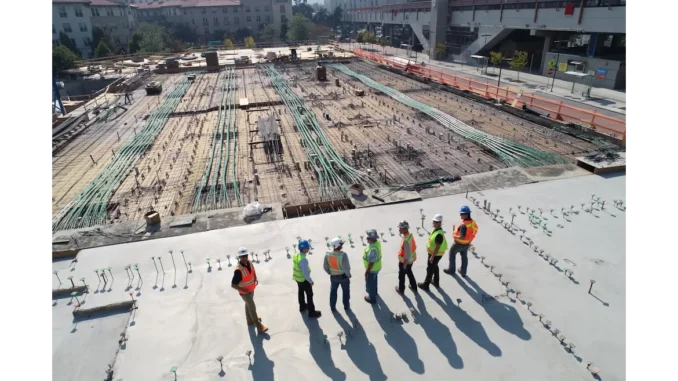
The UK construction industry, a vibrant and continually evolving sector, stands at the intersection of innovation and regulation. As we transition into the latter part of 2024, a series of significant legal updates has emerged, poised to reshape the industry’s operating environment. These developments offer both challenges and opportunities, compelling industry stakeholders to stay informed and adaptable. This article explores these pivotal changes and their potential impacts on the construction landscape.
Focus360 Energy: property compliance services – pre-planning to post-construction. Learn more.
One of the enduring debates within contract law is the enforceability of an “agreement to agree.” Traditionally viewed as unenforceable due to inherent uncertainties, recent judicial interpretations suggest a shift towards a more nuanced understanding. The courts have begun to delve deeper into the specificities of each case, assessing the construction and intent of the agreements involved. The case of KSY Juice Blends UK Ltd v Citrosuco GmbH [2024] EWHC 2098 exemplifies this complexity. Here, the court recognised that while the absence of agreement on essential terms could preclude contract formation, there are scenarios where courts are willing to imply terms to preserve a contract. This is particularly pertinent in commercial dealings where parties have operated under the belief that a binding contract was in place, and one party has benefited or incurred costs as a result. This development emphasises the necessity for clarity and precision in contract drafting, while also highlighting the courts’ pragmatic approach in maintaining commercial relationships.
Dispute resolution mechanisms, especially within the construction sector, are critical components of contract negotiations. The growing interest in expert determination clauses as a comprehensive dispute resolution tool is noteworthy. In Dandara South East Ltd v Medway Preservation Ltd & Anor [2024] EWHC 2318 (Ch), the court explored the viability of such clauses as all-encompassing solutions for contractual disputes. Upholding the presumption established in Fiona Trust and Holding Corpn v Privalov, the court affirmed that unless explicitly stated otherwise, parties intend for disputes to be resolved by a single tribunal. The ruling further underscored the separability of the expert determination clause, allowing it to independently function and resolve disputes outside the main contract. This suggests that expert determination clauses, when clearly articulated, could become a preferred method for dispute resolution in construction contracts, offering streamlined and efficient processes.
Adjudication, a cornerstone of construction law since the enactment of the Construction Act, continues to be a powerful dispute resolution mechanism. The recent ruling in CNO Plant Hire Ltd v Caldwell Construction Ltd [2024] EWHC 2188 provided clarity on the adjudication enforcement principles. The court reiterated that a valid payment application necessitates the payment of the ‘notified sum’ in the absence of a valid payment notice or pay less notice from the employer. The case reinforced the court’s robust approach to upholding adjudicators’ decisions, emphasising that set-offs are generally not permissible unless jurisdiction is exceeded or natural justice is compromised. This steadfast approach underscores the efficacy of adjudication as a swift and decisive resolution method, ensuring that contractors can secure timely payments.
In response to the persistent issue of late payments, the government has introduced initiatives aimed at fostering more responsible payment practices within the industry. A new Fair Payment Code and proposed legislation mandating large businesses to report payment practices in their annual disclosures are among the measures introduced. These initiatives aim to enhance transparency and accountability, with the inclusion of retention clause information in payment reporting requirements. Such measures are anticipated to alleviate cash flow challenges for contractors and subcontractors, contributing to a healthier financial ecosystem within the construction sector.
Additionally, the Joint Contracts Tribunal (JCT) has unveiled its 2024 suite of contracts, including the Repair and Maintenance Contract (RM 2024) and the Major Project Construction Contract 2024 (MP 2024). These revisions reflect current legal and industry standards, providing a robust framework for project execution. The updated contracts demonstrate a commitment to modernising construction practices, ensuring that contractual arrangements are aligned with contemporary legal requirements. Stakeholders are encouraged to familiarise themselves with these new contracts to fully leverage their benefits.
Simultaneously, the government’s brownfield passport proposals signal a shift towards sustainable development. These proposals aim to streamline the development process on brownfield sites, offering a default approval for suitable projects. By encouraging the use of previously developed land, this initiative reduces pressure on greenfield sites and aligns with broader environmental sustainability goals. Such proposals present developers with opportunities to engage in more environmentally responsible projects, contributing to sustainable urban growth.
The recent legal updates within the UK construction industry reveal a dynamic and evolving landscape. From contract enforcement and dispute resolution to government initiatives and sustainability efforts, these changes present both challenges and opportunities for stakeholders. As the industry navigates this complex terrain, staying informed and adaptable will be crucial for successfully managing the intricacies of the construction sector in the years to come.


Be the first to comment